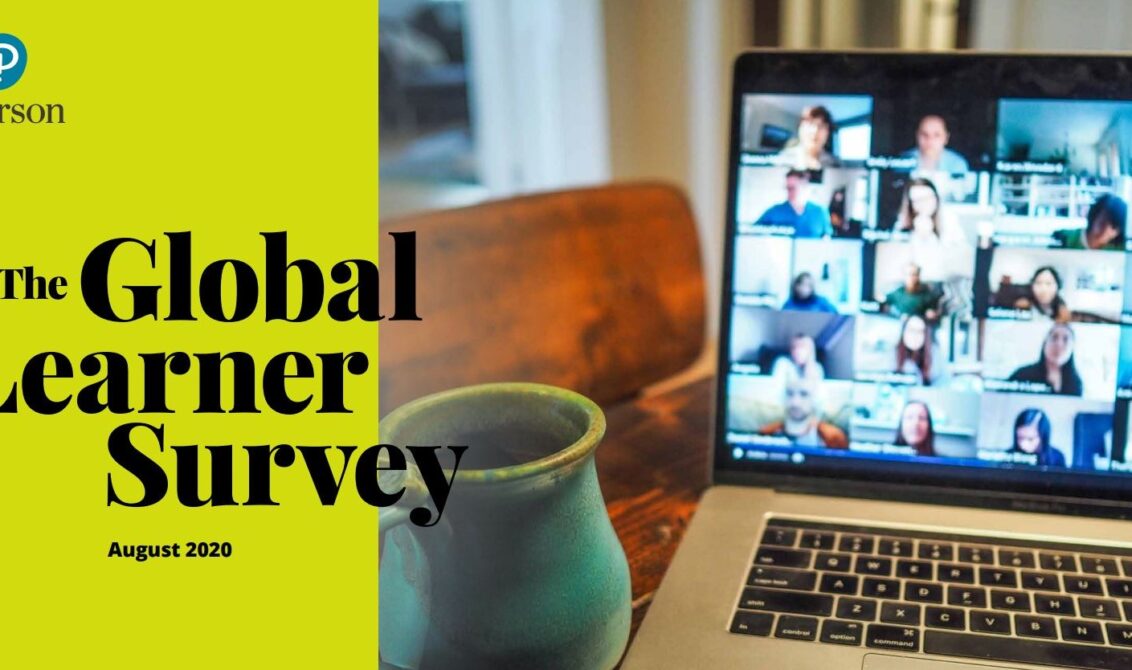
2020 is the year in which the world will measure itself in terms of “life before COVID-19 and life after”. It’s the lens through which people in this year’s Global Learner Survey are viewing their lives and their experience with education. And the consensus from learners? The world of education and work has forever changed in profound ways.
Now in its second year, our Global Learner Survey captures the opinions and views of learners worldwide and is the most comprehensive global public opinion survey of its kind. Pearson conducted the study during the pandemic with Harris Insights & Analytics, giving learners in seven countries the opportunity to voice their opinions on primary, secondary and higher education; and careers and the future of work.
The poll surveyed more than 7,000 people, ranging in age from 16 to 70 and shows learners believe it’s unlikely there will be a return to the pre-COVID world of entirely full-time in-person work and learning.
Learners know there is no going back to the pre-pandemic world. With technology and economic upheaval changing education forever, people are learning to move forward in a vastly changed world.
As they come to terms with this new reality, learners want schools and governments to address inequality in the learning experience, and desire digital skills they believe they will need to thrive in the new economy.
Below are the top findings from this year’s Global Learner Survey. Download the full report to understand the biggest trends impacting education during this time of change.
1. COVID-19 is revolutionising education and work
88% of learners globally say online learning will be a permanent part of primary, secondary and higher education moving forward. 77% say the pandemic already has permanently changed the way people work, with 90% saying people they must become more comfortable working remotely and in highly digital environments. 82% say the pandemic will give rise to new kinds of jobs, and nearly three out of every four say it will result in rethinking of their career paths.
2. Learners have conflicting feelings about universities
Especially when it comes to returning students to campuses this autumn. While 77% of people globally think opening universities is vital to a healthy economy, most are conflicted about how to do it safely, with 62% saying colleges and universities are risking the lives of students by opening this autumn. 84% believe that university students can still have a good experience with a mix of in person and online learning.
3. A broader increase in trust and confidence in educators and education systems
Because of how educators and education systems responded to COVID-19. Two-thirds of people globally said their education system did a good job adjusting to the pandemic. In fact, this year more people globally (54%) said education systems are providing a quality experience than a year ago (49%).
This year, even more people rate their country’s primary, secondary, and higher education systems as great or good compared to other countries. A notable exception is Brazil, the only country in the 2020 survey that saw faith in its education system decline.
4. A desire to see education systems do more to address inequality
Even though learners continue to believe education delivers opportunity, they worry that opportunity is not equal, with 88% saying they want schools to do more about the inequality. 70% globally believe the pandemic will deepen education inequalities, especially among younger students. In the U.S., 71% of people say that the pandemic has made them more likely to support student loan relief or government funded free-tuition programs.
5. An acceptance of online education that includes a desire to see it improved
88% of learners globally want educational institutions to maximise the learning experience through technology, though 67% say the education community uses technology less effectively than other industries, such as healthcare or banking. Given the choice to invest in public education, the survey’s global respondents said they would prioritise technology for under-served learners, followed by ensuring schools are better prepared for online learning.
6. A strong interest in attaining digital skills to thrive through and beyond the pandemic
More than half of respondents said they are in need of new digital skills because their job status has changed, with 89% saying they need digital skills, such as virtual collaboration and data analysis to move forward in this economy. Indeed, 77% of people say working remotely has taught them they need different skills than what was needed while working in an office. Around the world, 71% intend to keep working remotely in the future.
View the full findings of the Global Learner Survey and download the report.

